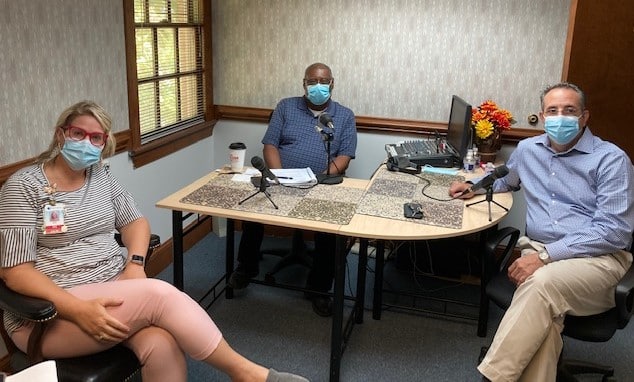“The fear of regularly-scheduled health screenings in the time of this pandemic is making a huge impact on early diagnosis, when it is easier to treat cancer,” said Nikki Hyatt, ECU Health Cancer Care outreach coordinator.
Dr. Emmanuel Zervos, surgical oncologist for ECU Brody School of Medicine and Vidant, and executive director of ECU Health Cancer Care, echoed those sentiments, noting that early detection leads to improved outcomes.
“Monitoring patients at risk for certain cancers or who meet recommended age criteria is the key to the early detection. Cancer screening is the best way to detect cancer before symptoms arise,” Dr. Zervos said. “The easiest cancer to treat is the one that never happens. The later we diagnose a cancer, the more limited and less effective treatment options become.”
Screening is recommended as early as age 30 for some cancers, especially in higher risk patients as part of their regular health routine. The American Cancer Society is now recommending PSA testing beginning as early as age 40 for high risk patients like African-American males with strong family histories of prostate cancer.
For breast cancer, mammography screening should begin at age 40 for normal risk patients and 30 for patients with known genetic mutations or syndromes or a history of radiation treatment to their chest between the ages of 10 and 30.
Dr. Zervos shared that anytime you are experiencing symptoms before the recommended age of screening, you should consult your primary care physician. Certain risk factors including race, family history, smoking tobacco and drinking alcohol all factor in to the need to initiate cancer screenings.
For those concerned about their risk for cancer, the Vidant Cancer Prevention Clinic is open and offers information about cancer prevention as well as treatment resources. For more information about the programs and resources at ECU Health Cancer Care, please call 816-RISK (7475).
